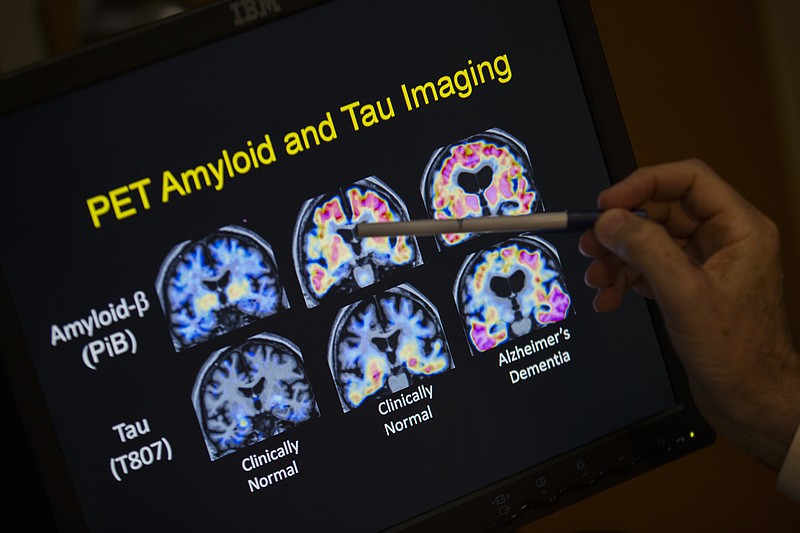Local high-schoolers from 1960 who participated in a landmark study could help researchers better understand the causes of Alzheimer's disease and other dementias.
Starting 58 years ago, a nationwide study was administered to more than 400,000 high school students in 1,353 schools across the country, including 818 students from Tyner High School, now called Tyner Academy and McCallie School in Chattanooga, and nearly 1,200 students from Sequatchie County High School in Dunlap, Tennessee, Rossville High School in Rossville, Georgia, and Pisgah High School in Pisgah, Alabama.
Those students are now being asked to complete a follow-up study focused on memory and cognitive health. Study director Susan Lapham said their answers will offer clues into what experiences, environments, behaviors and genetic factors may influence Alzheimer's and dementia.
"We don't really know what we're going to learn, but we're hoping to learn what are the things people can do to protect themselves from developing dementia or put themselves at a lower risk," Lapham said.
About 5.7 million Americans currently live with Alzheimer's, and that number is projected to reach 14 million by 2050 as the population continues to age, according to the Alzheimer's Association. Currently, there's no known cure for Alzheimer's disease, which costs the nation more than $270 billion and places additional emotional burdens on families and caregivers.
Participants should've received a paper booklet in the mail in the past month with questions pertaining to their life since they were last surveyed.
"We ask a lot of questions about their career, their education after high school, we ask a lot of questions about their health," Lapham said. "There's some questions about memory - is your memory better or worse than it was 5 years ago?"
Joe Plemons, 76, is a participant from Tyner's class of 1960 who now lives in Fort Walton Beach, Florida. Plemons said he'd nearly forgotten about the original study until he found an old information card and googled Project Talent.
"Sure enough, they were still listed. So I filled out a form to get an update about what's going on," Plemons said. He was also able to receive a copy of his original test results.
"According to the test, I should have been a dentist, which was about as far from the truth as you could get," Plemons, who worked as a laboratory chemist, said jokingly.
Since many participants have moved, tracking them down can be a challenge, Lapham said. Classmates are encouraged to reach out to each other in order to achieve the target 10 percent response rate by the end of July.
Plemons said he's interested in seeing the research that comes out of the Project Talent Aging Study.
"As you do get older, the memory tends to get harder and harder. We know that it's on the carousel. We've just got to wait for it come around," Plemons said. "All the older folks kid about that, but for some folks, it's not a laughing matter.
"Maybe this research is to try and see if there's some commonalities in things that have happened to [participants] or they've done in the past a lot of my age group was involved in the Vietnam War. I would be interested to look into that and see if they connect anything."
Individuals who attended the high schools mentioned from 1960 to 1963 and are interested in participating in the study and have not received a survey in the mail in the past month can call 866-770-6077 or send an email to projecttalentstudy@air.org.
Contact staff writer Elizabeth Fite at efite@timesfreepress.com or 423-757-6673.
